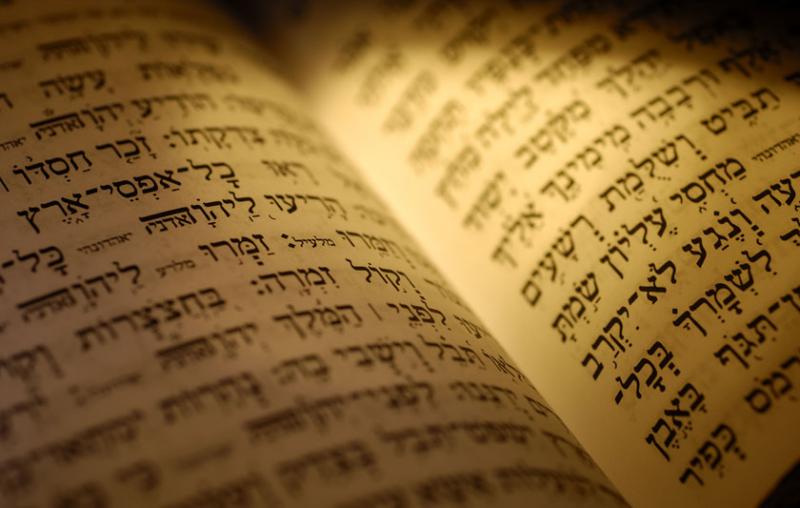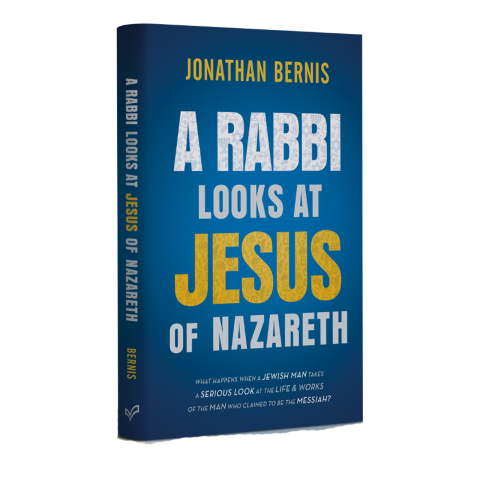
“The New Testament misquotes and misinterprets the Old Testament. At times it manufactures verses to suit its purposes.”
Answer: “There is no truth to this claim. You must remember that all the New Testament authors were Jews—with one probable exception—and they were sometimes writing to Jewish readers who knew their Scriptures well. To manufacture, misquote, or misinterpret verses from the Tanakh would be absolutely self-defeating. The fact is, these authors spent much time meditating on the Tanakh, and you would be amazed to see just how insightful their quotations and interpretations are, not to mention how much they are in keeping with the ancient Jewish methods of scriptural hermeneutics.” (See Answering Jewish Objections to Jesus, vol. 4, pp. 3-21.)
“According to Matthew 2:15, when the little boy Jesus, along with Joseph and Mary, fled to Egypt to escape from Herod, this “fulfilled what the Lord had said through the prophet: ‘Out of Egypt I called my son.’” But Matthew only quoted the second half of the verse in Hosea. What the prophet really said was this: “When Israel was a child, I loved him, and out of Egypt I called My son.” The verse has to do with Israel, not Jesus, and it is recounting a historical event, not giving a prophecy. And you claim that Matthew was inspired. Hardly!”
Answer: “When Matthew quoted the second half of Hosea 11:1, he took for granted that his Jewish readers would know the whole verse. (Remember that many of Matthew’s intended readers knew large portions of the Hebrew Scriptures by heart, and quoting just part of a verse was a common Jewish practice of the day.) What he was saying was clear: Just as it happened to Israel, God’s national “son,” so also it happened to Jesus, God’s Messianic Son, and the ideal representative of the nation. Both were called out of Egypt in their childhood.” (See Answering Jewish Objections to Jesus, vol. 4, pp. 21-24.)”
Get the "A Rabbi Looks at Jesus of Nazareth" Book
With warmth and transparency, Jewish Voice’s own Messianic Rabbi Jonathan Bernis shares a compelling case for Jesus as Messiah and presents overwhelming evidence that can be traced to the Torah itself.
“Matthew 2:23 says that when Jesus moved to the town of Nazareth, this “fulfilled what was said through the prophets: ‘He will be called a Nazarene.’” There’s only one problem. The prophets never said this! Matthew actually made it up.”
Answer: “If you’ll look closely at the text, you’ll see that Matthew does not use his normal quotation formula for citing verses from the Hebrew Bible. Normally he would say something like, “to fulfill what was spoken through the prophet,” making reference to a specific text in a specific prophetic book. In 2:23 he says, “so that what had been spoken through the prophets might be fulfilled,” indicating that he is dealing with a theme (or play on words) that occurs in several prophetic books as opposed to only one text in a specific prophetic book. With this in mind, it’s not difficult to see the sections from the Tanakh that Matthew had in mind. As always with Matthew, his insights are deep.” (See Answering Jewish Objections to Jesus, vol. 4, pp. 24-27.)
“Matthew 27:9-10 is totally confused. First Matthew quotes part of a prophecy from Zechariah, then he says it comes from Jeremiah, and then he takes the whole thing totally out of context. What a mess!”
Answer: “Allow me to respond to your objection with a question of my own: If you were a traditional Jew and found a similar citation in the Talmud not with reference to Yeshua, but with reference to some halakhic or haggadic subject would you say that it was “totally confused,” or would you say that it was a difficult passage but one that could certainly be resolved through careful study? No doubt, you would say that it could be resolved. In fairness, then, let me show you how these verses in Matthew can also be explained through careful study, looking at the deeper themes of his book and not just at this one passage in isolation. Once again, you will see that Matthew is anything but confused in his reading of the Tanakh.” (See Answering Jewish Objections to Jesus, vol. 4, pp. 27-37.)
“Hebrews 10:5 is one of the worst examples of New Testament Scripture-twisting. The writer quotes from Psalm 40, where the psalmist says, “You have opened my ears,” but he applies it to Jesus and changes the words to read, “A body you have prepared for me.” Could you imagine anything more dishonest?”
Answer: “Actually, the writer to the Hebrews was simply quoting from the Septuagint the Greek version of the Scriptures made by and for Greek-speaking Jews as he generally does throughout his book. In this particular case, the exact meaning of the original Hebrew is somewhat unclear, and the Septuagint offered an interpretive rendering. So, neither the Septuagint nor Hebrews were in the least bit dishonest or misleading. Also, it’s interesting that Hebrews does not major on the part of the verse that was supposedly changed but puts the emphasis on other parts of the quote.” (See Answering Jewish Objections to Jesus, vol. 4, pp. 37-40.)
“The New Testament is full of historical inaccuracies.”
Answer: “Actually, where the New Testament accounts can be verified or checked by external, contemporary sources, they are consistently accurate. (If they can’t be verified or checked, and they bear the marks of good history writing which they do how can anyone claim that they are inaccurate?) So, the real question is: What contemporary historical records are there that contradict the New Testament authors? In point of fact, there are none. It should also be pointed out that out of all ancient documents, the New Testament was the best preserved.” (See Answering Jewish Objections to Jesus, vol. 4, pp. 41-59.)
“None of the important historical writers of the period—Roman or Jewish—make mention of Jesus. It’s questionable whether he even existed.”
Answer: “No reputable scholar in the world denies that Jesus existed. You might as well as deny the existence of George Washington or Julius Caesar. As for Roman and Jewish historians, there are important ancient testimonies from key authors who write of Jesus as well as his early followers. You might also be surprised to know that almost all of these sources tell us more about Jesus than they do about any contemporary Rabbinic leaders. Does this mean that these famous rabbis never existed?” (See Answering Jewish Objections to Jesus, vol. 4, pp. 59-66.)
“Modern scholars are in complete agreement that the Gospels portray a mythical Jesus. There is very little that we can really know about his life.”
Answer: “The real myth is that we cannot know anything certain about the life of Jesus! The issue is one of presuppositions. Those scholars who are skeptical about knowing anything certain about the life of Jesus presuppose that the Gospel accounts are not reliable, just as they presuppose that the accounts in the Hebrew Bible about Abraham, Moses, or David are not reliable. The same scholars who deny the resurrection of Jesus also deny the exodus from Egypt. In any case, a strong case can actually be made for the historical reliability of the New Testament accounts.” (See Answering Jewish Objections to Jesus, vol. 4, pp. 66-70.)
Get the "A Rabbi Looks at Jesus of Nazareth" Book
With warmth and transparency, Jewish Voice’s own Messianic Rabbi Jonathan Bernis shares a compelling case for Jesus as Messiah and presents overwhelming evidence that can be traced to the Torah itself.
“Jesus was not born of a virgin. In fact, we have traditions that actually tell us who Jesus’ real father was—and it wasn’t Joseph! Anyway, the idea of a god being born to a virgin is just one of several pagan myths that made its way into the New Testament.”
Answer: “The fact of the virgin birth was something that made the ministry of Jesus harder, not easier. You try telling someone that your Master and Teacher was born of a virgin! Everyone thought that Joseph was his real father, and it was known that Joseph was a descendant of David, something which could have only helped, not hurt, Jesus’ cause. If not for the virgin birth being a fact and one which was also foreshadowed in the Hebrew Scriptures the New Testament writers would have never created such a story. As for the virgin birth being a borrowed pagan myth, could you tell me which pagan myth you are referring to? There is none!” (See Answering Jewish Objections to Jesus, vol. 4, pp. 70-76.)
“The genealogies of Jesus given by Matthew and Luke are hopelessly contradictory.”
Answer: “There do appear to be some contradictions in these genealogies, just as there appear to be contradictions in some of the genealogies in the Hebrew Scriptures. But there are very reasonable answers that resolve the conflicts without having to advance any farfetched or implausible theories. Common sense would also tell you that the followers of Jesus, who were totally dedicated to demonstrating to both Jews and Gentiles that he was truly the Messiah and Savior, would not preserve and pass on two impossibly contradictory genealogies. In fact, this very suggestion directly contradicts the common objection that the New Testament authors rewrote the accounts of the Gospels in order to make Jesus look like he was the Messiah (see below, 5.14). The reality is that they accurately reported the story of his life and were careful to include two important genealogies in presenting the account of his ancestry and birth.” (See Answering Jewish Objections to Jesus, vol. 4, pp. 76-83.)
This material is reprinted with permission. Adapted from Dr. Michael L. Brown’s book series Answering Jewish Objections to Jesus.




